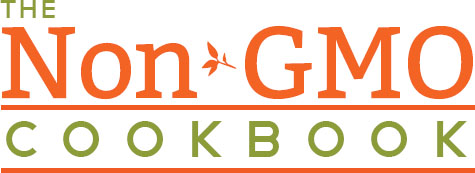

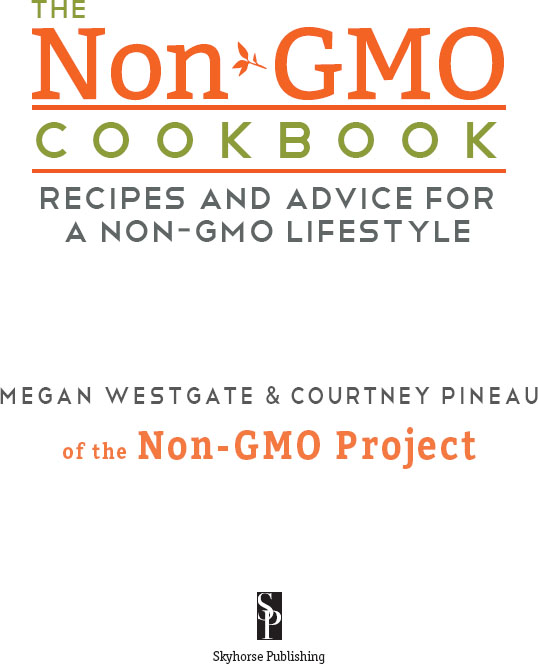 Copyright 2013 by Megan Westgate and Courtney Pineau Photos copyright 2013 by Abigail Gehring and Timothy Lawrence except as follows: Page 25: Ryan Black; Page 26: Megan Westgate; Pages 3031: Alicia Funk; Page 34: Annemarie Rossi; Page 44: Carissa Bonham; Page 61: Bonnie Matthews; Page 65: Mateo Boucher; Page 71: Karielyn Tillman; Page 79: Stock.xchng; Page 99: Aube Giroux; Page 108 Robynn Shrader; Page 121: Cathy Christiansen; Page 122123: Melissa King; Page 125: Sonnet Lauberth; Page 139: Arran Stephens; Page 150: Carol Kicinski; Page 154: Vani Hari; Page 157: Fran Osborne All Rights Reserved. No part of this book may be reproduced in any manner without the express written consent of the publisher, except in the case of brief excerpts in critical reviews or articles. All inquiries should be addressed to Skyhorse Publishing, 307 West 36th Street, 11th Floor, New York, NY 10018. Skyhorse Publishing books may be purchased in bulk at special discounts for sales promotion, corporate gifts, fund-raising, or educational purposes. Special editions can also be created to specifications. For details, contact the Special Sales Department, Skyhorse Publishing, 307 West 36th Street, 11th Floor, New York, NY 10018 or .
Copyright 2013 by Megan Westgate and Courtney Pineau Photos copyright 2013 by Abigail Gehring and Timothy Lawrence except as follows: Page 25: Ryan Black; Page 26: Megan Westgate; Pages 3031: Alicia Funk; Page 34: Annemarie Rossi; Page 44: Carissa Bonham; Page 61: Bonnie Matthews; Page 65: Mateo Boucher; Page 71: Karielyn Tillman; Page 79: Stock.xchng; Page 99: Aube Giroux; Page 108 Robynn Shrader; Page 121: Cathy Christiansen; Page 122123: Melissa King; Page 125: Sonnet Lauberth; Page 139: Arran Stephens; Page 150: Carol Kicinski; Page 154: Vani Hari; Page 157: Fran Osborne All Rights Reserved. No part of this book may be reproduced in any manner without the express written consent of the publisher, except in the case of brief excerpts in critical reviews or articles. All inquiries should be addressed to Skyhorse Publishing, 307 West 36th Street, 11th Floor, New York, NY 10018. Skyhorse Publishing books may be purchased in bulk at special discounts for sales promotion, corporate gifts, fund-raising, or educational purposes. Special editions can also be created to specifications. For details, contact the Special Sales Department, Skyhorse Publishing, 307 West 36th Street, 11th Floor, New York, NY 10018 or .
Skyhorse and Skyhorse Publishing are registered trademarks of Skyhorse Publishing, Inc., a Delaware corporation. Visit our website at www.skyhorsepublishing.com. 10 9 8 7 6 5 4 3 2 1 Library of Congress Cataloging-in-Publication Data is available on file. ISBN: 978-1-62873-418-5 Printed in China  Dedicated to the luminous green of sunlight shining through leaves in the garden. To the gentle rain and the pungent promise of dark, rich soil. To the magic of seeds.
Dedicated to the luminous green of sunlight shining through leaves in the garden. To the gentle rain and the pungent promise of dark, rich soil. To the magic of seeds.
Dedicated to that deep, insistent song that calls us to be reverent, loving stewards of this one precious Earth. 
 Introduction E very day we hear from people who are concerned about GMOs (genetically modified organisms). As awareness spreads, people from all walks of life are increasingly looking for ways to avoid GMOs in the food they are eating and feeding to their loved ones. As the directors of the Non-GMO Project, our mission is to preserve and build North Americas non-GMO food supply and to provide non-GMO choices to consumers through our product verification program. We believe that everyone has a right to know whats in their food and we are thrilled to be offering this cookbook as a resource for enjoying safe, healthy meals. Away from the office, we are both passionate about growing and preparing wholesome, delicious food.
Introduction E very day we hear from people who are concerned about GMOs (genetically modified organisms). As awareness spreads, people from all walks of life are increasingly looking for ways to avoid GMOs in the food they are eating and feeding to their loved ones. As the directors of the Non-GMO Project, our mission is to preserve and build North Americas non-GMO food supply and to provide non-GMO choices to consumers through our product verification program. We believe that everyone has a right to know whats in their food and we are thrilled to be offering this cookbook as a resource for enjoying safe, healthy meals. Away from the office, we are both passionate about growing and preparing wholesome, delicious food.
Together with our families on our respective homesteads in northwest Washington state, we grow as much of our own food as possible. Vegetables from organic seeds and eggs from our chickensraised on Non-GMO Project Verified feedare staples in our diets, as are simple ingredients from our local farmers market and food co-op. This cookbook reflects our non-GMO way of life, and also the choices and values of many other individuals in the non-GMO community. In endeavoring to make this more than a compilation of recipes, we solicited submissions from leaders of the movementfrom accomplished speakers and authors to food bloggers and everyday citizens who have taken up the non-GMO mission. Throughout this book, we share their stories along with their recipes and we hope you find them as inspiring as we do. Our heartfelt wish is that everyone be deeply nourished by the food they eat.
With shared commitment and thoughtful choices, we can all enjoy safe, healthy food and protect it for generations to come. Megan Westgate, Executive Director of the Non-GMO Project Courtney Pineau, Assistant Director May 2013  About GMOs What is a GMO? Genetically modified organisms (GMOs) are plants or animals created through the process of genetic engineering. This experimental technology forces DNA from one species into a different species. The resulting GMOs are unstable combinations of plant, animal, bacterial, and viral genes that cannot occur in nature or in traditional breeding. To give you an idea of just how weird this can get, in 1991 a variety of tomato was engineered with genes from the Arctic flounder to make it frost-tolerant. Fortunately, that product was never brought to market, but its a good illustration of how unnatural GMOs are.
About GMOs What is a GMO? Genetically modified organisms (GMOs) are plants or animals created through the process of genetic engineering. This experimental technology forces DNA from one species into a different species. The resulting GMOs are unstable combinations of plant, animal, bacterial, and viral genes that cannot occur in nature or in traditional breeding. To give you an idea of just how weird this can get, in 1991 a variety of tomato was engineered with genes from the Arctic flounder to make it frost-tolerant. Fortunately, that product was never brought to market, but its a good illustration of how unnatural GMOs are.
Almost all commercial GMOs are engineered to withstand direct application of herbicide and/or to produce an insecticide. Despite biotech industry promises, none of the GMO traits currently on the market offer increased yield, drought tolerance, enhanced nutrition, or any other consumer benefit. How common are GMOs? In the United States, GMOs are in as much as 80 percent of conventional processed food. What are the most common GMOs? In the Non-GMO Projects Product Verification Program, we have three categories of GMO risk: High, Monitored, and Low. High-risk crops: These crops are currently in commercial production in genetically engineered form. Alfalfa (first planting 2011) Canola (about 90 percent of US crop) Corn (about 88 percent of US crop) Cotton (about 90 percent of US crop) Papaya (most of Hawaiian crop) Soy (about 94 percent of US crop) Sugar Beets (about 95 percent of US crop) Zucchini and Yellow Summer Squash (about 25,000 acres) Animal products (milk, meat, eggs, honey, etc.) are also considered high-risk because of contamination in feed. Monitored crops: The monitored category is for crops where there are suspected or known instances of contamination from GMO relatives or other sources. Monitored crops: The monitored category is for crops where there are suspected or known instances of contamination from GMO relatives or other sources.
We test these crops regularly to assess risk and move crops to the high-risk category for ongoing testing if we see contamination. Beta vulgaris (e.g., chard, table beets) Brassica napus (e.g., rutabaga, Siberian kale) Brassica rapa (e.g., bok choy, mizuna, Chinese cabbage, turnip, rapini, tatsoi) Cucurbita (e.g., acorn squash, delicata squash, patty pan) Flax Rice Wheat Common ingredients derived from GMO risk crops Amino acids, aspartame, ascorbic acid, sodium ascorbate, vitamin C, citric acid, sodium citrate, ethanol, flavorings (natural and artificial), high-fructose corn syrup, hydrolyzed vegetable protein, lactic acid, maltodextrins, molasses, monosodium glutamate (MSG), sucrose, textured vegetable protein (TVP), xanthan gum, vitamins, yeast products. You may also be wondering about...Tomatoes: In 1994, genetically modified Flavr Savr tomatoes became the first commercially produced GMOs. They were brought out of production just a few years later, in 1997, due to problems with flavor and ability to hold up in shipping. There are no genetically engineered tomatoes in commercial production and tomatoes are considered low-risk by the Non-GMO Project Standard.
Next page
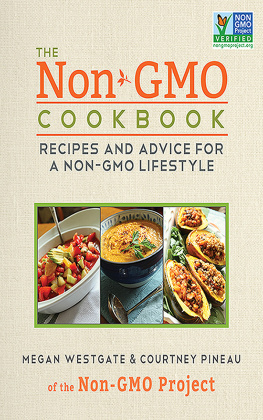
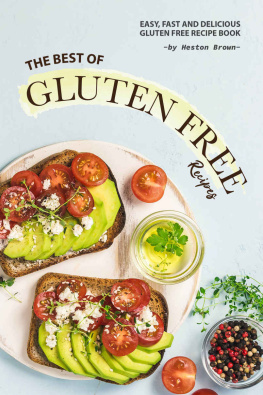
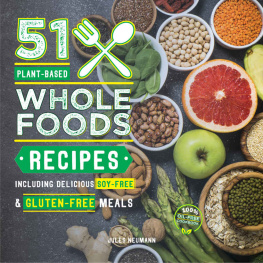

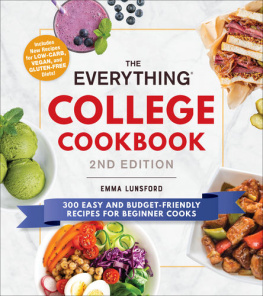
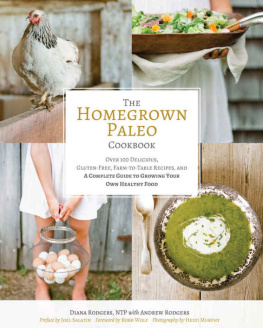
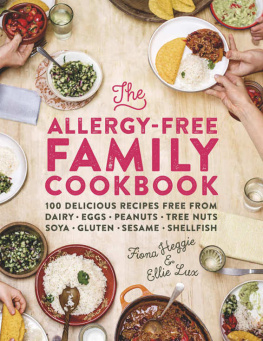
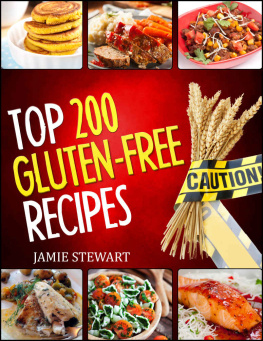


 Copyright 2013 by Megan Westgate and Courtney Pineau Photos copyright 2013 by Abigail Gehring and Timothy Lawrence except as follows: Page 25: Ryan Black; Page 26: Megan Westgate; Pages 3031: Alicia Funk; Page 34: Annemarie Rossi; Page 44: Carissa Bonham; Page 61: Bonnie Matthews; Page 65: Mateo Boucher; Page 71: Karielyn Tillman; Page 79: Stock.xchng; Page 99: Aube Giroux; Page 108 Robynn Shrader; Page 121: Cathy Christiansen; Page 122123: Melissa King; Page 125: Sonnet Lauberth; Page 139: Arran Stephens; Page 150: Carol Kicinski; Page 154: Vani Hari; Page 157: Fran Osborne All Rights Reserved. No part of this book may be reproduced in any manner without the express written consent of the publisher, except in the case of brief excerpts in critical reviews or articles. All inquiries should be addressed to Skyhorse Publishing, 307 West 36th Street, 11th Floor, New York, NY 10018. Skyhorse Publishing books may be purchased in bulk at special discounts for sales promotion, corporate gifts, fund-raising, or educational purposes. Special editions can also be created to specifications. For details, contact the Special Sales Department, Skyhorse Publishing, 307 West 36th Street, 11th Floor, New York, NY 10018 or .
Copyright 2013 by Megan Westgate and Courtney Pineau Photos copyright 2013 by Abigail Gehring and Timothy Lawrence except as follows: Page 25: Ryan Black; Page 26: Megan Westgate; Pages 3031: Alicia Funk; Page 34: Annemarie Rossi; Page 44: Carissa Bonham; Page 61: Bonnie Matthews; Page 65: Mateo Boucher; Page 71: Karielyn Tillman; Page 79: Stock.xchng; Page 99: Aube Giroux; Page 108 Robynn Shrader; Page 121: Cathy Christiansen; Page 122123: Melissa King; Page 125: Sonnet Lauberth; Page 139: Arran Stephens; Page 150: Carol Kicinski; Page 154: Vani Hari; Page 157: Fran Osborne All Rights Reserved. No part of this book may be reproduced in any manner without the express written consent of the publisher, except in the case of brief excerpts in critical reviews or articles. All inquiries should be addressed to Skyhorse Publishing, 307 West 36th Street, 11th Floor, New York, NY 10018. Skyhorse Publishing books may be purchased in bulk at special discounts for sales promotion, corporate gifts, fund-raising, or educational purposes. Special editions can also be created to specifications. For details, contact the Special Sales Department, Skyhorse Publishing, 307 West 36th Street, 11th Floor, New York, NY 10018 or . Dedicated to the luminous green of sunlight shining through leaves in the garden. To the gentle rain and the pungent promise of dark, rich soil. To the magic of seeds.
Dedicated to the luminous green of sunlight shining through leaves in the garden. To the gentle rain and the pungent promise of dark, rich soil. To the magic of seeds.
 Introduction E very day we hear from people who are concerned about GMOs (genetically modified organisms). As awareness spreads, people from all walks of life are increasingly looking for ways to avoid GMOs in the food they are eating and feeding to their loved ones. As the directors of the Non-GMO Project, our mission is to preserve and build North Americas non-GMO food supply and to provide non-GMO choices to consumers through our product verification program. We believe that everyone has a right to know whats in their food and we are thrilled to be offering this cookbook as a resource for enjoying safe, healthy meals. Away from the office, we are both passionate about growing and preparing wholesome, delicious food.
Introduction E very day we hear from people who are concerned about GMOs (genetically modified organisms). As awareness spreads, people from all walks of life are increasingly looking for ways to avoid GMOs in the food they are eating and feeding to their loved ones. As the directors of the Non-GMO Project, our mission is to preserve and build North Americas non-GMO food supply and to provide non-GMO choices to consumers through our product verification program. We believe that everyone has a right to know whats in their food and we are thrilled to be offering this cookbook as a resource for enjoying safe, healthy meals. Away from the office, we are both passionate about growing and preparing wholesome, delicious food. About GMOs What is a GMO? Genetically modified organisms (GMOs) are plants or animals created through the process of genetic engineering. This experimental technology forces DNA from one species into a different species. The resulting GMOs are unstable combinations of plant, animal, bacterial, and viral genes that cannot occur in nature or in traditional breeding. To give you an idea of just how weird this can get, in 1991 a variety of tomato was engineered with genes from the Arctic flounder to make it frost-tolerant. Fortunately, that product was never brought to market, but its a good illustration of how unnatural GMOs are.
About GMOs What is a GMO? Genetically modified organisms (GMOs) are plants or animals created through the process of genetic engineering. This experimental technology forces DNA from one species into a different species. The resulting GMOs are unstable combinations of plant, animal, bacterial, and viral genes that cannot occur in nature or in traditional breeding. To give you an idea of just how weird this can get, in 1991 a variety of tomato was engineered with genes from the Arctic flounder to make it frost-tolerant. Fortunately, that product was never brought to market, but its a good illustration of how unnatural GMOs are.